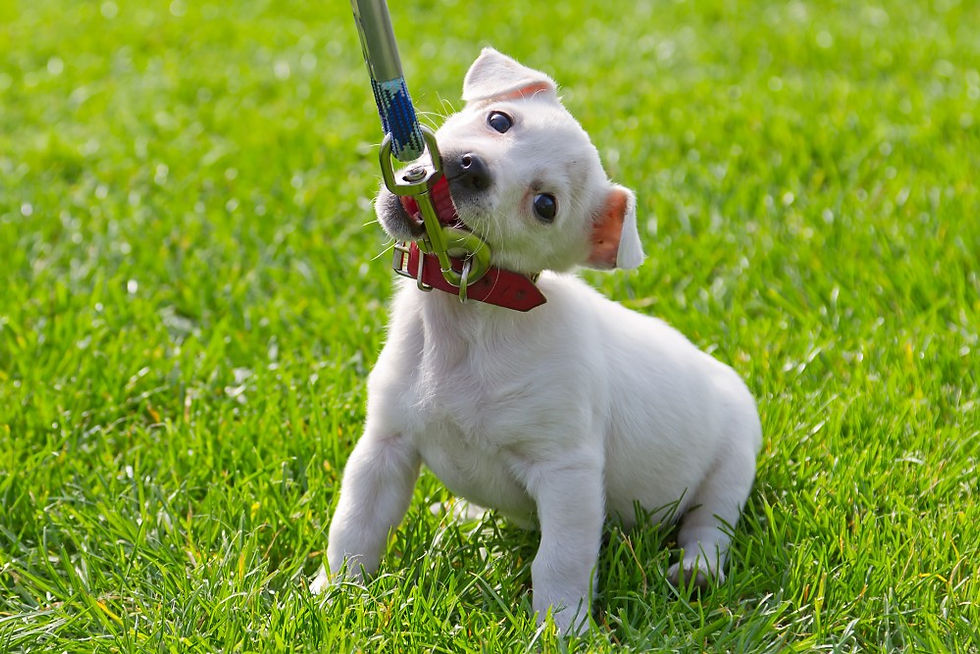Fear and Insecurity
- Brianna Dick

- Apr 17, 2019
- 3 min read
Updated: Nov 27, 2019
By Todd Langston

Dogs become fearful for many reasons and it’s one of the most common issues I deal with in my practice. Once dogs become fearful you can see a wide array of behaviors such as aggression, flight, freezing, hiding or avoiding.
The wide range of symptoms combined with consistent human emotional patterns is why this energy can be so difficult to get a handle on.
If your dog is nervous here are some things you can do to make them more confident
Try not to coddle, give affection or sympathy to a nervous dog. Whatever gets affection will be repeated so you don't want your dog to think you like them nervous. Sympathy is decoded as "weakness" in the animal world and nervous dogs need to sense that you are confident and self assured.
When your dog shows fear you need to practice what I call “nurse energy.” Think of it this way, if you were badly injured and very afraid, would you feel more relaxed if the nurse or doctor panicked when they saw your injuries? Doubt it. A calm, confident, balanced nurse can soothe you with their presence.
Don’t use your voice and avoid eye contact.
Calm, patient, confident energy is the only energy that will help a nervous dog.
Nervous dogs thrive with routine. The routine should be heavy with exercise and structure. Structure is anything that controls movement such as tying a dog to your waist or "anchoring" them to something heavy. This prevents the pattern of flight to continue.
Lots of physical exercise can help nervous dogs.
If a dog is not using their nose they are not using their minds. When working with really nervous dogs you will notice they won’t smell things at first. Once you see them sniffing and smelling you are making progress. You can use food to get their nose interested but only offer a treat when they become calm.
Ignore and do not try to pet a nervous dog when they first approach to get a sniff of you. Just because they come up for a smell does not mean they want to be touched. When a dog is ready to be touched or pet they will approach you and stay in your space. If you reach out to pet a dog before they are ready you will erode trust.
If you must approach a nervous dog be aware of your body language. You should turn your shoulders to the side and if the dog is really nervous you should approach backwards. This will tell a nervous dog you understand them. However, its really best to wait for them to approach you.
If your nervous dog gets along with other dogs that can help. A calm, balanced dog is a great influence on an unstable dog.
It takes as long as it takes. You can’t rush anything when working with fear...take your time.
Quick body = quick mind. If you are moving quick you will overwhelm fear. Slow down. Forget the past. The past can’t fix the present so stay right here in the now.
Food rewards can be useless with fear, as fearful energy often won’t eat or take food from us. If this is the case stop using it because trying to give a dog food who won’t take it can erode trust.
Massage is a great way to reward a nervous do when they start showing confidence. This way you teach them if they are calm they get a massage. Not a bad trade out.




Comments